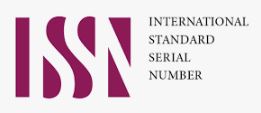COMMUNITY SERVICE ACTIVITIES: DEVELOPMENT OF ENVIRONMENTALLY FRIENDLY PRODUCTION PROCESSES IN THE PASURUAN FURNITURE INDUSTRY TO INCREASE PRODUCTIVITY AND SUSTAINABILITY OF SMEs
Community Service Activities: Development Of Environmentally Friendly Production Processes In The Pasuruan Furniture Industry To Increase Productivity And Sustainability Of Smes
DOI:
https://doi.org/10.30996/jpm17.v10i01.12574Abstract
The furniture industry in Pasuruan, East Java, is one of the important sectors in the local economy and contributes greatly to Indonesian product exports. However, despite the large potential of this industry, the furniture sector faces serious challenges related to sustainability and the environmental impact of its production process. Most of the furniture industry in Pasuruan, especially among small and medium enterprises (SMEs), still relies on traditional technology and production methods that are less efficient and have a negative impact on the environment, such as the use of non-renewable raw materials, poorly managed wood waste, and high energy consumption. This community service activity (CSA) aims to provide solutions in the form of implementing environmentally friendly technology in the furniture production process in Pasuruan. The proposed environmentally friendly technology includes energy efficiency methods, wood waste management, and the use of more sustainable raw materials, such as wood from reprocessing or environmentally friendly alternative materials. This activity will increase the awareness and capacity of furniture SMEs to implement production processes that are not only efficient but also environmentally friendly. Thus, these industry players can reduce negative impacts on the environment while increasing the competitiveness of their furniture products in domestic and global markets that increasingly demand environmentally friendly products. In addition, this CSA aims to improve the quality of furniture products from Pasuruan SMEs by integrating sustainability principles into every stage of the production process. SMEs will be given training and assistance in identifying opportunities to implement environmentally friendly production practices, from selecting more efficient raw materials to better waste management methods. With an environmentally friendly, technology-based approach, SMEs will benefit from reduced production costs, energy savings, and increased competitiveness of higher quality and more sustainable products. The expected impact of this activity is the realization of a more sustainable furniture industry in Pasuruan, with the success of SMEs adopting environmentally friendly technology and being able to compete with international furniture products that increasingly pay attention to sustainability aspects. The implementation of this technology not only has an impact on production efficiency and reducing carbon footprints but can also contribute to the creation of new, larger market opportunities, with increasing global demand for environmentally friendly products. With more competitive, innovative, and sustainable results, the development of the furniture industry in Pasuruan will not only provide economic benefits for SMEs but also have a positive impact on the quality of life of the surrounding community, especially through the creation of better and more sustainable jobs. In addition, this effort also supports global efforts to mitigate climate change and ensure the sustainability of the manufacturing industry in general.
Downloads
Downloads
Published
Issue
Section
License
COPYRIGHT NOTICE
The copyright in this website and the material on this website (including without limitation the text, computer code, artwork, photographs, images, music, audio material, video material and audio-visual material on this website) is owned by PM17: Jurnal Pengabdian Masyarakat and its licensors.
Copyright license
JPM17: Jurnal Pengabdian Masyarakat grants to you a worldwide non-exclusive royalty-free revocable license to:
- View this website and the material on this website on a computer or mobile device via a web browser;
- Copy and store this website and the material on this website in your web browser cache memory; and
- Print pages from this website for your
- All articles published by PM17: Jurnal Pengabdian Masyarakat are licensed under the creative commons attribution 4.0 international license. This permits anyone to copy, redistribute, remix, transmit and adapt the work provided the original work and source is appropriately cited.
JPM17: Jurnal Pengabdian Masyarakat does not grant you any other rights in relation to this website or the material on this website. In other words, all other rights are reserved.
For the avoidance of doubt, you must not adapt, edit, change, transform, publish, republish, distribute, redistribute, broadcast, rebroadcast or show or play in public this website or the material on this website (in any form or media) without appropriately and conspicuously citing the original work and source or JPM17: Jurnal Pengabdian Masyarakat prior written permission.
Permissions
You may request permission to use the copyright materials on this website by writing to compliance@academicjournals.org.
Enforcement of copyright
JPM17: Jurnal Pengabdian Masyarakat takes the protection of its copyright very seriously.
If JPM17: Jurnal Pengabdian Masyarakat discovers that you have used its copyright materials in contravention of the license above, JPM17: Jurnal Pengabdian Masyarakat may bring legal proceedings against you seeking monetary damages and an injunction to stop you using those materials. You could also be ordered to pay legal costs.
If you become aware of any use of ACADEMIC JOURNALS' copyright materials that contravenes or may contravene the license above, please report this by email to compliance@academicjournals.org.
Infringing material
If you become aware of any material on the website that you believe infringes your or any other person's copyright, please report this by email to jpm17@untag-sby.ac.id
target="_blank"













